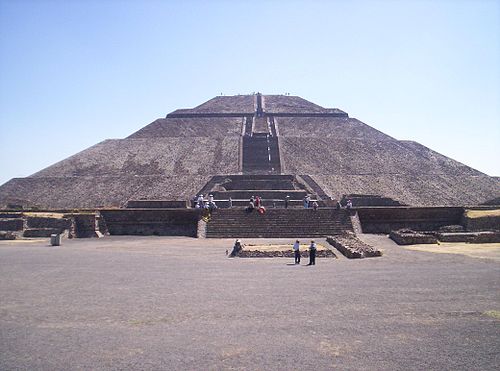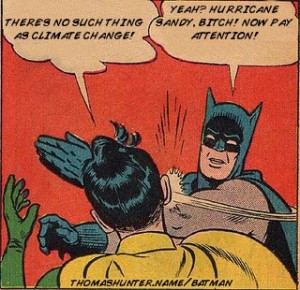Egalitarian Cities In Early Central America
Posts on The Dawn Of Everything: Link
Befor I read Chapter 9 of The Dawn Of Everything I thought all the Pre-Columbian Central American societies were monarchies, and that they all practiced violent rituals, including lethal ball games and ritual human sacrifices. David Graeber and David Wengrow describe a city, Teotihuacan, and a city-state,Tlaxcala, that were not.
Teotihuacan
Teotihuacan was founded around 100 BCE in the Valley of Mexico, where Mexico City is today. It grew into a city aided by an influx of people fleeing an earthquake and a volcanic eruption. It seems to have started with a traditional top-down authoritarian regime. There were huge constructions including the Pyramids of the Sun and Moon and the Temple of the Feathered Serpent and other public buidings. Around 250-350 CE there was a dramatic change in the organization of the city.
A key piece of evidence is the desecration of the Temple of the Feathered Serpent and the construction of a new center of organization along the Avenue of the Dead. At the same time, they built stone apartment complexes to house the population, which is estimated at 125,000. The authors cite the work of an early excavator who thought these apartments were a form of social housing, designed to bring order to the growing population. The authors paint an idyllic picture of a communal commercial life.
We don’t know exactly how the city was organized or governed in the later period, but the authors say we an probably rule out a top-down form of government. The city lasted for about 250 years in this form, and then it collapsed, perhaps under the strain of rising class inequalities, perhaps exacerbated by a long period of drought.
By around AD 550, the social fabric of the city had begun to come apart at the seams. There is no compelling evidence of foreign invasion. Things seems to have disintegrated from within. Almost as suddenly as it had once coalesced some five centuries previously, the city’s population dispersed again.… P. 345.
This history is broadly similar to that in Wikipedia.
Tlaxcala
Tlaxcala was an independent group of four small kingdoms formed in the 14th Century to stand against their Aztec neighbors, the Triple Alliance. The authors say it was a democratic entity that governed itself by consensus. The primary evidence for this is records of their decision to ally with the army of Hernan Cortés in 1519. The description of the decision-making process given by the authors sounds a lot like that of the Native Americans of the Great Lakes region discussed in earlier chapters. Of course, once the Spanish destroyed the Aztecs, they subjugated and evangelized the peoples of Tlaxcala.
Here’s the relevant part of a brief Wiki entry, which gives a somewhat different history, and ignores the organization issue. Both accounts discus the Flower Wars. The Wiki entry says the Flower Wars were ritual combat intended to demonstrate the machismo of the participants, and were less lethal than the wars of conquest. The authors say these were real wars, and that the Aztecs made up this story about the Flower Wars to cover up their inability to conquer the Tlaxcall people; “But this was braggadocio.” P. 348.
Discussion
1. Mesoamerican art of this era is remarkable, as the authors note. Here’s an article describing some of it. There’s a Nova episode on the archaeology of the Maya people. This and other material got me to thinking about the role of religious beliefs in the ancient cultures described by the authors. One of the central factors is the role of religion in the power structure of cultures like the Aztecs and Maya, and many others, including our own.
2. The book does not discuss of the origins of religion in ancient societies. Instead of religion, we are told that our ancestors participated in rituals, in the case of Teotihuacan, “calendrical rituals”. All of the cultures discussed in The Dawn of Everything had rituals, fertility rituals for humans and agriculture, rituals for the beginning of the new year, rituals for rain, and so on. We might think of them as precursors of organized religion.
Decades ago I read Mircea Eliade’s book, The Myth Of The Eternal Return, which I stole from my mother’s bookshelves. Eliade offers a framework for understanding the mindset that adheres to ritual. It starts with the differentiation of the sacred and the profane. This is from Wikipedia:
According to Eliade, traditional man distinguishes two levels of existence: (1) the Sacred, and (2) the profane world. (Here “the Sacred” can be God, gods, mythical ancestors, or any other beings who established the world’s structure.) To traditional man, things “acquire their reality, their identity, only to the extent of their participation in a transcendent reality”. Something in our world is only “real” to the extent that it conforms to the Sacred or the patterns established by the Sacred. Fn. omitted.
The entire Wiki entry is worth reading, and for those interested the book is full of valuable material and fascinating speculation. Fun fact: I first heard of the Epic Of Gilgamesh from this book, and I recall spending a long afternoon at the library of the University of North Carolina reading it in 1970.
I can’t find my copy of the book so I don’t know if Eliade discusses Mesoamerican beliefs. But we can find hints that these people believed that they were participating in the divine through human and animal sacrifice and human bloodletting. See this and this.
3. In many ancient societies the monarch, ostensibly an earthly power, became a deity. In Eliade’s terms, this is a melding the Sacred and profane. We see this in some of the Mesoamerican societies, and in Egypt, for example. A weak version of the idea continues into the 17th Century under the concept of the Divine Right of Kings, one of the ideas rejected by Jefferson in the Declaration of Independence (“All men are created equal”.) We can see echoes of it today in the legal doctrine of sovereign immunity, which arises from the idea that the king holds power under the aegis of the Almighty. Therefore the king can do no wrong and cannot be sued. This bizarre notion was imported from English Common Law into US law without much thought, and despite Jefferson’s principle. Now there’s a zombie idea.
4. The effort to link religion and political power exists today in the US and other nations. You might get the impression that some religious leaders see their religion as a stepping-stone to earthly power.



![[image: NOAA's National Integrated Drought Information System (NIDIS)]](https://www.emptywheel.net/wp-content/uploads/2016/04/DroughtGov_GlobalDroughtMap_14APR2016_500pxw.jpg)

